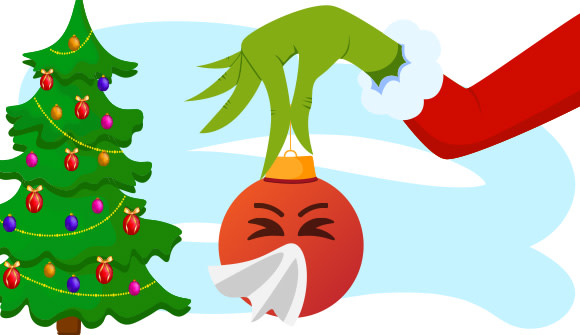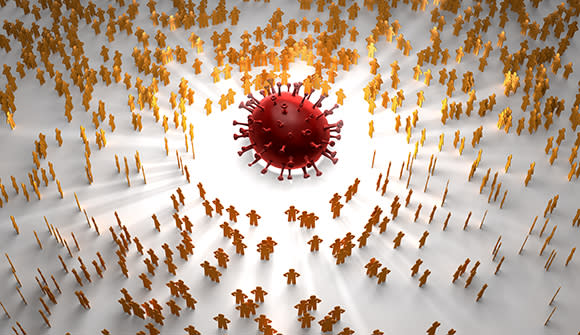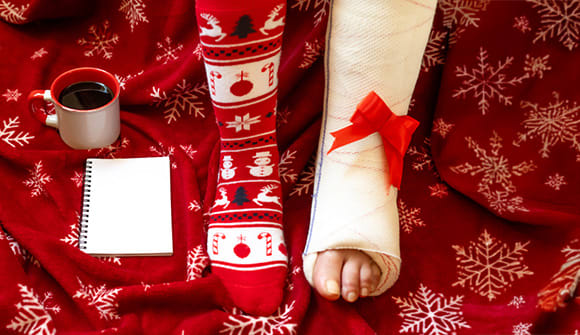No flu for you
How to keep the virus from “grinching” your holiday.
Article Author: Wesley Roberts
Article Date:

According to the U.S. Centers for Disease Control and Prevention's Fluview, a large number of states across the nation, including Florida, are experiencing an increase in seasonal flu activity. With the end-of-year holiday season in full swing, Shalika Katugaha, MD, system medical director of Infectious Diseases at Baptist Health, has a few tips for helping stop the flu from ruining your fun.
Q. Why are we seeing a spike in flu cases?
A. “First, in the pandemic years we had masking, lockdowns and physical distancing. These barriers prevented the spread of respiratory viruses. Now we’re masking less and gathering more,” said Dr. Katugaha. “Second, because we didn’t have a robust flu season in the past two years, we, as a community, don’t have immunity from these viruses.”
Q. The holiday season is upon us. What can we do to prepare?
A. “Get your flu shot if you’re eligible!” said Dr. Katugaha. “It’s not too late, and the time is now. The good news is that the circulating strain of flu is very well matched to the vaccine, which means the vaccine should provide excellent protection.
In addition:
- Wash your hands frequently for 20 seconds with warm water and soap.
- Decontaminate surfaces.
- Rest: Lack of sleep can impact the immune system’s ability to fight illnesses.
- Eat healthy foods and maintain your exercise routine between the celebrations and travel.
- Avoid touching your eyes, nose and mouth with your hands as this is a common way viruses spread.
- Cover coughs and sneezes with a tissue or the side of your elbow. You can encourage kids to use their “chicken wing” (inside their elbow) when coughing or sneezing.
- Stay home if you are sick.
Q. When is it too late to get your flu shot?
A. Depending on the vaccine, it takes 2 to 4 weeks for your body to build up its immune response to a virus. So, time is tight for end-of-year celebrations. However, Dr. Katugaha said, “The flu season continues through May, so there are still benefits to getting it!”
Q. What should we look for after spending time with friends and family?
A. “Flu, RSV and COVID-19 have similar symptoms you should watch for: Fever, sore throat, congestion, cough and runny nose,” advised Dr. Katugaha.
The viruses have different incubation periods, which means the length of time between exposure and the first symptoms. For the flu virus, it’s within 2 days. For omicron, it’s 3-4 days and for RSV, it’s 4-6 days.
Dr. Katugaha said, “If you have symptoms, you should stay out of the community and get tested. There are different treatment options for each disease process.”
Q. If you do have the flu, what can you do to treat it?
A. "First, reach out and ask your primary care doctor if you are eligible for an anti-viral treatment,” said Dr. Katugaha.
In addition:
- Stay comfortable: Take acetaminophen or ibuprofen to hold down fevers and control pain and body aches.
- Rest
- Stay hydrated: Eat popsicles with electrolytes or high fluid-filled foods and drink a lot of water.
- For congestion: try steamy baths, cool mist humidifiers or nasal saline sprays.
You can get a flu shot for you and your child wherever is most convenient for you! Retail pharmacy locations and some Baptist Primary Care physicians have the vaccine available.



